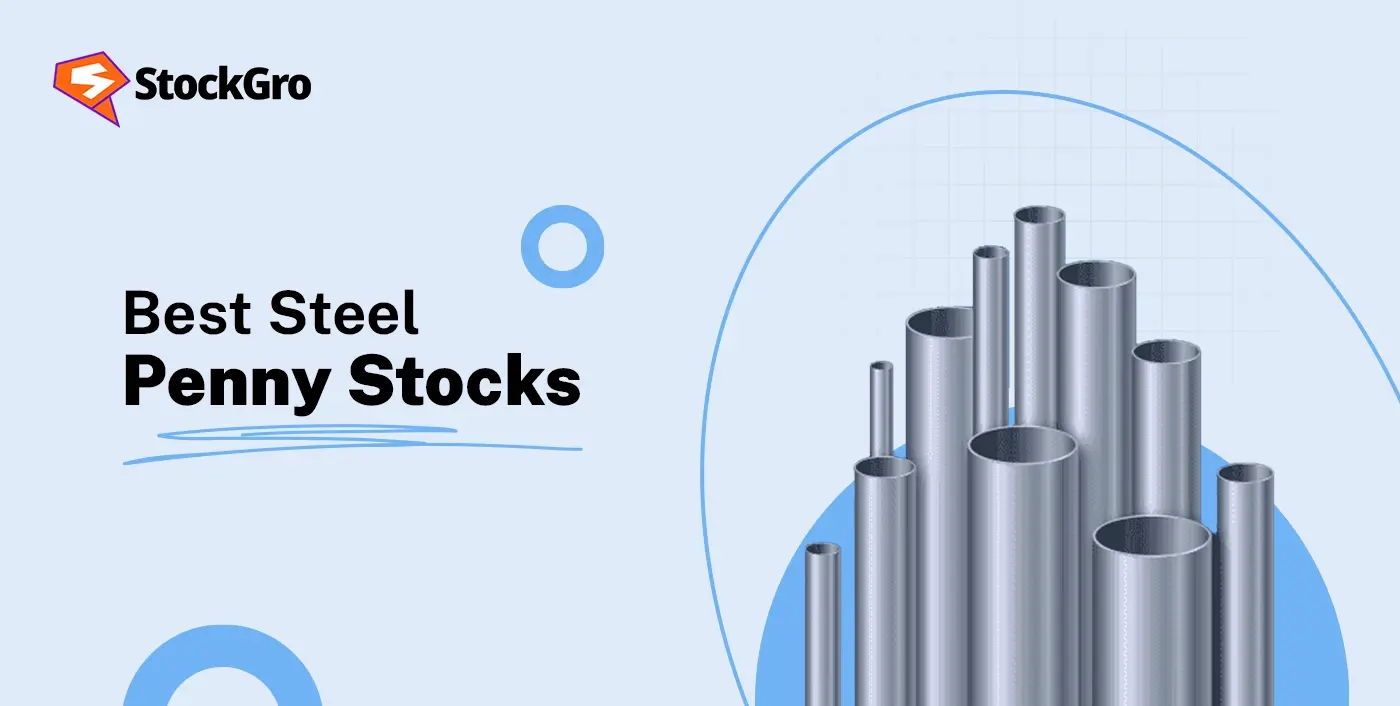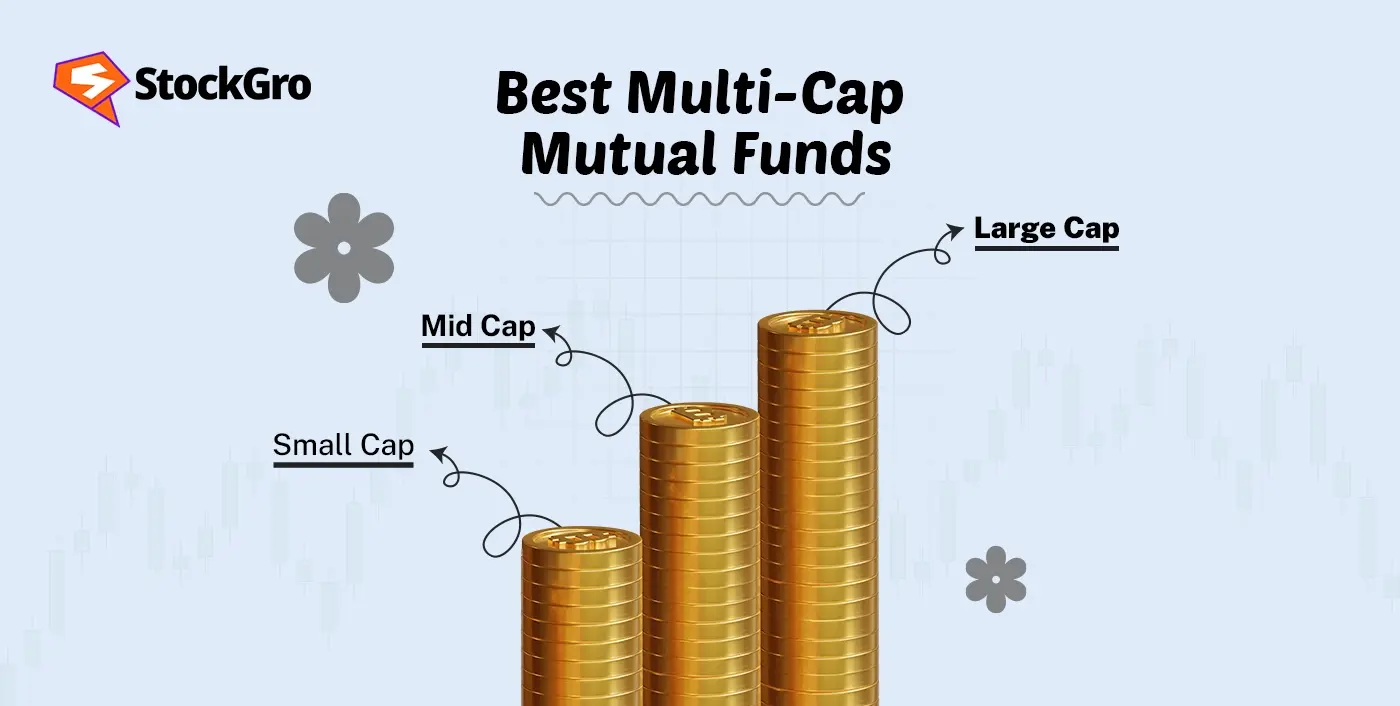
The steel sector of India exhibited strong growth in 2025, with finished steel consumption touching 137.85 million tonnes in the period April-February, which is an impressive 11.3% increase from the last year, indicating the demand surge and the positive momentum in the sector.
Government infrastructure investments and thriving construction activities have become the main factors that lead not only record steel production but also capacity expansion. As the sector’s share in GDP increases, steel continues to play a central role in India’s economic transformation. Continue reading to find out the leading steel penny stocks in 2025.
Also Read: Steel stocks rally as DGTR proposes 12% safeguard duty
Top steel sector penny stock in India
Here are the top steel sector penny stocks based on their current price, as of June 27, 2025:
| Name | Current Price (₹ ) | Market capitalisation (₹ crores) | P/E ratio | ROE % | ROCE % | Debt to equity ratio |
| Scan Steels Ltd | 36.5 | 214 | 9.88 | 5.28 | 7.22 | 0.15 |
| NMDC Steel Ltd | 41.3 | 12,115 | N/A | -16.6 | -13.0 | 0.45 |
| Manaksia Steels Ltd | 62.4 | 409 | 34.9 | 3.80 | 4.15 | 0.67 |
| Jai Balaji Industries Ltd | 135 | 12,307 | 22.1 | 30.8 | 36.1 | 0.26 |
Scan Steels Ltd
Scan Steels Ltd, with its main office in Bhubaneswar, Odisha, is an integrated steel manufacturer, best recognised for its Shrishtii brand, with manufacturing units located in Odisha and Karnataka. The company caters to the construction and infrastructure sectors with a wide range of steel products, including TMT bars, billets, and structural steel.
Scan Steels registered a Profit After Tax (PAT) of ₹17.73 crore and a Basic Earnings Per Share (EPS) of ₹3.39 in 2024. Its market capitalisation as of 27 June 2025 is around ₹214 crore.
| Particulars | March 2025 (₹ Crores) | March 2024 (₹ Crores) |
| Sales | 241.19 | 256.98 |
| Operating Profit | 8.93 | 16.19 |
| Net Profit | 4.74 | 11.43 |
| EPS (₹) | 0.81 | 2.18 |
Also Read: JSW Steel stock analysis & expert insights in detail
NMDC Steel Ltd
NMDC Steel Ltd runs a 3.0 MTPA integrated steel plant at Nagarnar, Chhattisgarh, which is the location of the second-largest blast furnace (4,506 m³) in India and the hot strip mill technology of a high level.
The plant’s product mix consists of low-carbon steel, high-strength low-alloy, and API-quality steel, with thicknesses from 1 mm to 16 mm and widths up to 1,650 mm. These materials are the primary input for sectors such as infrastructure, engineering, and automotive.
NMDC Steel is the owner of four ISO certifications for quality, safety, environment, and energy management.
| Particulars | March 2025 (₹ Crores) | March 2024 (₹ Crores) |
| Sales | 2838 | 1846 |
| Operating Profit | -291 | -956 |
| Net Profit | -473 | -861 |
Manaksia Steels Ltd
Manaksia Steels Ltd, a company of the Manaksia Group, is an ISO 9001:2015 certified producer of cold rolled, galvanized, and colour-coated steel sheets and coils. The firm is located in Kolkata and has factories in West Bengal.
The company has a monthly production capacity of 8,000 MT of cold rolled coils and 5,000 MT of coated steel products. Manaksia Steels is thus the go-to source, a reliable supplier of products for construction, automotive, and consumer durables sectors, both home and overseas.
| Particulars | March 2025 (₹ Crores) | March 2024 (₹ Crores) |
| Sales | 190.13 | 152.97 |
| Operating Profit | 7.70 | 6.89 |
| Net Profit | 4.33 | 5.25 |
| EPS (₹) | 0.66 | 0.80 |
Jai Balaji Industries Ltd
Eastern India’s integrated steelmaker Jai Balaji Industries Ltd produces TMT bars, pipes, billets, and alloys and offers steel to major infrastructure projects across the country.
In FY25, the company reported revenue from operations of ₹63,508 million, maintained an EBITDA margin of 14%, and produced 543,185 tonnes of billets, 246,770 tonnes of TMT, and 166,271 tonnes of DI pipes.
Net term debt was reduced to ₹2,214 million as of March 2025, and promoters owned 64. 84% of the shares of the company.
| Particulars | March 2025 (₹ Crores) | March 2024 (₹ Crores) |
| Sales | 1590 | 1846 |
| Operating Profit | 133 | 241 |
| Net Profit | 75 | 273 |
| EPS (₹) | 0.83 | 3.34 |
Also Read: Top 10 Industrial Stocks in India
Conclusion
Infrastructure growth and govt initiatives-driven expansion of the Indian steel sector have resulted in more activity in the penny stock segment. These stocks are characterised by the combination of the potential for big returns and higher risk as they mirror the broader market and sector trends. Steel penny stocks’ performance is a function of financial results, industry developments, and economic conditions, making them the prominent segment of India’s changing steel industry landscape.
FAQs
Steel penny stocks, because of their low prices, small market caps, and low liquidity, can go through more volatility and price changes. Such characteristics may cause them to be more vulnerable to market trends and trading behaviour which can then influence their prices. The segment’s openness and regulatory control can also be different, thus the peculiar trading behaviour often seen in penny stocks, including those in the steel sector, can be continued.
Factors include the financial condition of the company, profitability, and debt levels; market position and growth potential; industry trends and cyclicality; raw material price volatility; regulatory environment; liquidity and trading volume; and the degree of financial disclosure openness. Performance can also be affected by competitive dynamics and exposure to global markets, therefore these factors become important when assessing steel penny stocks.
Along with the use of energy-efficient technologies, greater recycling, and investigation of alternative production methods such as hydrogen-based steelmaking, India’s steel industry is witnessing changes geared toward sustainable expansion. As it aligns with the shifting national climate policies and evolving economic goals, the industry is adapting through continuous efforts to reduce emissions, enhance resource efficiency, and attract investment.
Low share prices and little market capitalisation characterise Indian steel penny stocks, with their performance influenced by industry cycles, demand patterns, raw material costs, and legislative elements. Smaller steel firms often exhibit higher volatility and lower liquidity compared to larger players, with their profitability and risk levels influenced by a mix of company-specific developments and broader market conditions.
Based on market capitalisation as of June 27, 2025, JSW Steel Ltd, Tata Steel Ltd, and Jindal Steel and Power Ltd. are the three top steel stocks in India. Strong demand from the infrastructure, building, and automobile industries, together with quick capacity expansion, is driving the Indian steel sector even as it negotiates difficulties including growing imports, pricing pressures, and global trade dynamics.

